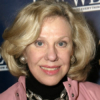Erica Jong

Erica Jong
Erica Jongis an American novelist and poet, known particularly for her 1973 novel Fear of Flying. The book became famously controversial for its attitudes towards female sexuality and figured prominently in the development of second-wave feminism. According to Washington Post, it has sold more than 20 million copies worldwide...
NationalityAmerican
ProfessionNovelist
Date of Birth26 March 1942
CityNew York City, NY
CountryUnited States of America
I mostly hate organized religion, which I think is a force for the oppression of women and creates warfare.
I myself hate that old Hemingwayesque paradigm of the writer as prizefighter and I have tried hard to create an alternate one for myself. When Anne Sexton admonished me, "We are all writing God's poem," I took it to mean there should be no competition between writers because we are all involved in a common project, a common prayer. But to Gore's and Norman's generation, particularly those male writers who served in the second world war, the prizefighter paradigm remains.
Hate generalizes; love is particular.
No one to blame! That was why most people led lives they hated, with people they hated. How wonderful to have someone to blame! How wonderful to live with one's nemesis! You may be miserable, but you feel forever in the right. You may be fragmented, but you feel absolved of all the blame for it. Take your life in your own hands, and what happens? A terrible thing: no one to blame.
it is not unusual to hate great writers before we learn to love them. Because they have created something that did not yet exist, they must also create their audience. Sometimes the audience is not yet ready. Sometimes it has yet to be born.
As women, we can't look old. We can't be fat. We're supposed to look like the 14-year-old models in Vogue, who are younger and younger and skinnier and skinnier, and they are air-brushed and contoured and Photoshopped.
If you've been a pretty woman and always pursued by lovers, losing that and not having that - it feels like a great loss.
I don't necessarily read everything. I read what I need to read to inspire the book I'm trying to finish.
Most sex is not really intimate.
Most sex doesn't really bring people together. You have to reach a certain level of connection, I think, and that's pretty rare.
I think poetry is the best thing I do. It's certainly the purest. I seem to switch gears without too much trouble. Non-fiction is in many ways the easiest to write.
Good sex is a mystery. Perhaps humping and pumping is not a mystery, but good sex is a mystery, and how human beings become truly intimate remains a mystery.
I was always a feminist. My mother was a feminist; my grandmother was a feminist. I always understood women had to fight very hard to do what they wanted to do in the world - that it wasn't an easy choice. But I think the most important part is that we all want the right to be taken seriously as human beings, and to use our talents without reservation, and that's still not possible for women.
Sex just as a drive, as a hormonal drive, is not very interesting.